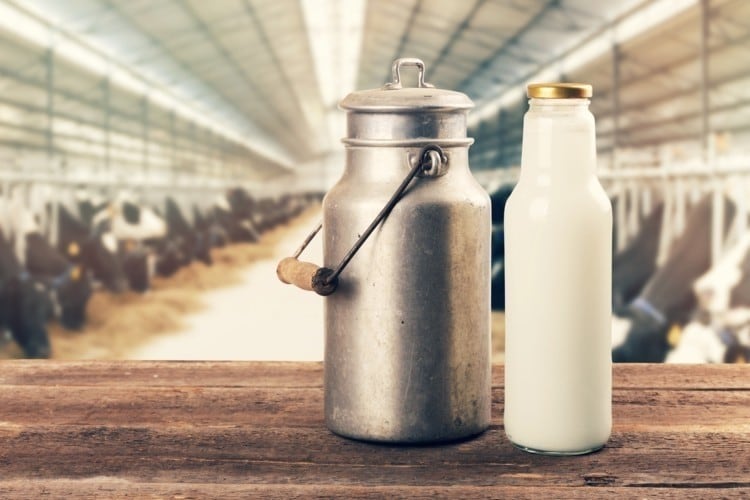China’s Ministry of Agriculture and Rural Affairs (MARA) recently released the ‘National Action Plan to Boost Dairy Competitiveness’ in conjunction with the country’s 14th Five-Year Plan, highlighting nine major areas within the dairy industry that will be receiving more focus over the next several years.
These include areas such as streamlining the supply chain management for the dairy sector, utilising better technological developments to improve production, stabilising the commercial distribution of dairy, improving safety monitoring, processing technology and marketing.
The specific amount of investment and manpower that will flow to each area was not publicly disclosed, however one of China’s largest dairy firms Mengniu believes that the government should be focusing more resources to boost dairy self-sufficiency instead.
“Under the purview of the national strategy to revitalise the dairy industry, China’s milk production has reached 4.1% of the total global production and we have become the world’s fourth largest producer and second largest consumer of dairy,” Mengniu representative to China’s National People’s Congress Shi Yudong said at a high-level meeting.
“We do see that the technology, quality and safety levels of China’s dairy products have reached international standards and are at the highest they have been in history, so the conditions are definitely ripe for the sector’s comprehensive revitalisation – that said, it also cannot be denied that our milk self-sufficiency rate has been declining year after year, with increasing dependence on foreign sources of dairy.
“The action plan itself has highlighted that in 2020 China’s dairy product imports increased by 70.4% as compared to 2015, whereas the local milk self-sufficiency rate dropped by 9.6% - This shows a very strong contrast with the rapidly-growing consumer market for dairy and has severely restricted development.
“This shows that there is urgent need to improve the competitiveness of the local dairy industry with more effective measures, in order to break the bottleneck [before it becomes too difficult to do so].”
For this, Shi believes that increased investment into research and development for the sector is required, from feed and resource analysis to technological advances in processing equipment.
“Another area that will need sufficient [public investment] is the establishment of national-level reserve centres and trading centres – This will be crucial for the dairy sector to achieve sufficient reach as well as to fully contribute to national food security,” he said.
Major challenges despite achievements
Although the Chinese dairy sector has achieved extremely rapid progress over the past few years - particularly under the national dairy revitalisation strategy and spearheaded by industry heavyweights Mengniu and Yili - there are still quite a number of challenges that the sector has yet to overcome, which it will need to do before truly reaching a stable state.
“In China, the first half of the year is considered peak season for the production of dairy products and low season for consumption, whereas the second half of the year is peak for dairy sales and low for production – this leads to an obvious issue in terms of seasonal supply and demand imbalance,” Shi added.
“At present, the industry is attempting to overcome this contradiction by offering product price promotions or processing via powder spraying and other methods to ensure the purchase of the fresh milk. This is resulting in a huge amount of cost pressure on the industry, particularly for small firms, and tend to negatively impact the farmers and cattle-rearers as well.
“This is one of the reasons national-level reserve centres and trading centres are so important, as these could form a buffer supply to ensure no shortage is experienced so that prices can be stabilised year-round. There are many other countries with developed dairy industries that do this which we could learn from, and adapt systems according to China’s specific needs so as to help the dairy market operate smoothly whilst also protecting all stakeholders’ interests.”


